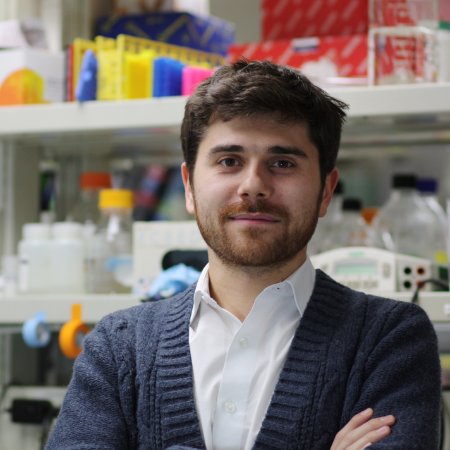Get to know another invited speaker to the upcoming 14th NYRA Meeting in Norwich (September 19th-21st) through this ‘tête-à-tête’.
Dr. Antoine Molaro studied Biology, did his Ph.D. at the Cold Spring Harbor Laboratory (NY, USA), and moved to Seattle (WA, USA) as Postdoctoral Fellow at Fred Hutchinson Cancer Research Center. Dr. Molaro is currently a group leader of the Evolutionary Epigenomics and Genetic Conflicts Research Team at GReD Institute in Clermont-Ferrand (France). His research focuses on understanding the function of the germline epigenome in the context of evolution and genetic conflict.
When and why did you decide to work in the field of reproductive biology?
I would say as a biology student in college. I have always entertained a profound interest in the mechanisms of inheritance, especially from an evolutionary perspective. This drove me to study molecular processes underlying germline development during my bachelor’s and then germ cell epigenomics during my Ph.D. So perhaps it is not surprising that today my group investigates all sorts of weird gene families with chromatin function in reproductive cells.
Have you moved across countries? If so, where? and if not, have you considered this during your career?
Yes. I even spent some time in Cambridge, UK, in the St Johnston Lab, during my bachelor’s. I then moved across the Atlantic for my Ph.D. (CSHL, NY, in the Hannon Lab) and again for my Postdoc (Fred Hutch, Seattle, Malik lab). I am now “back” in France as a PI.
Can you name the greatest success(es) in your career?
Well, it’s probably surviving in academia to continue exploring, and sharing, the things I love with people I appreciate and respect (mentors, colleagues, trainees,…). Then, I guess there are also a few discoveries I am really proud of that I should mention, such as our investigation of primate sperm epigenomes back in the 2010s; or building all sorts of mouse models to study novel inheritance mechanisms related to our recent work on short H2A histone variants.
Can you name a moment of failure (and which lesson did you learn from it)?
There are many in research. In fact, unlike what appears in papers, failure makes up for the vast majority of our work. I could maybe talk about the feeling of failure you might experience when your application doesn’t go through or you don’t get that job interview you so very much hoped for. Like many of us, I have had my fair share of those. While frustrating at first, these rejections always pushed me to reconsider my approach or intentions. Sometimes it pays off on the next try. Sometimes there is nothing you can do, so I trained myself not to focus on the things I can’t control in science.
Which advice would you give to young researchers?
Find what you are passionate about in research and identify the community that would best support this passion.

